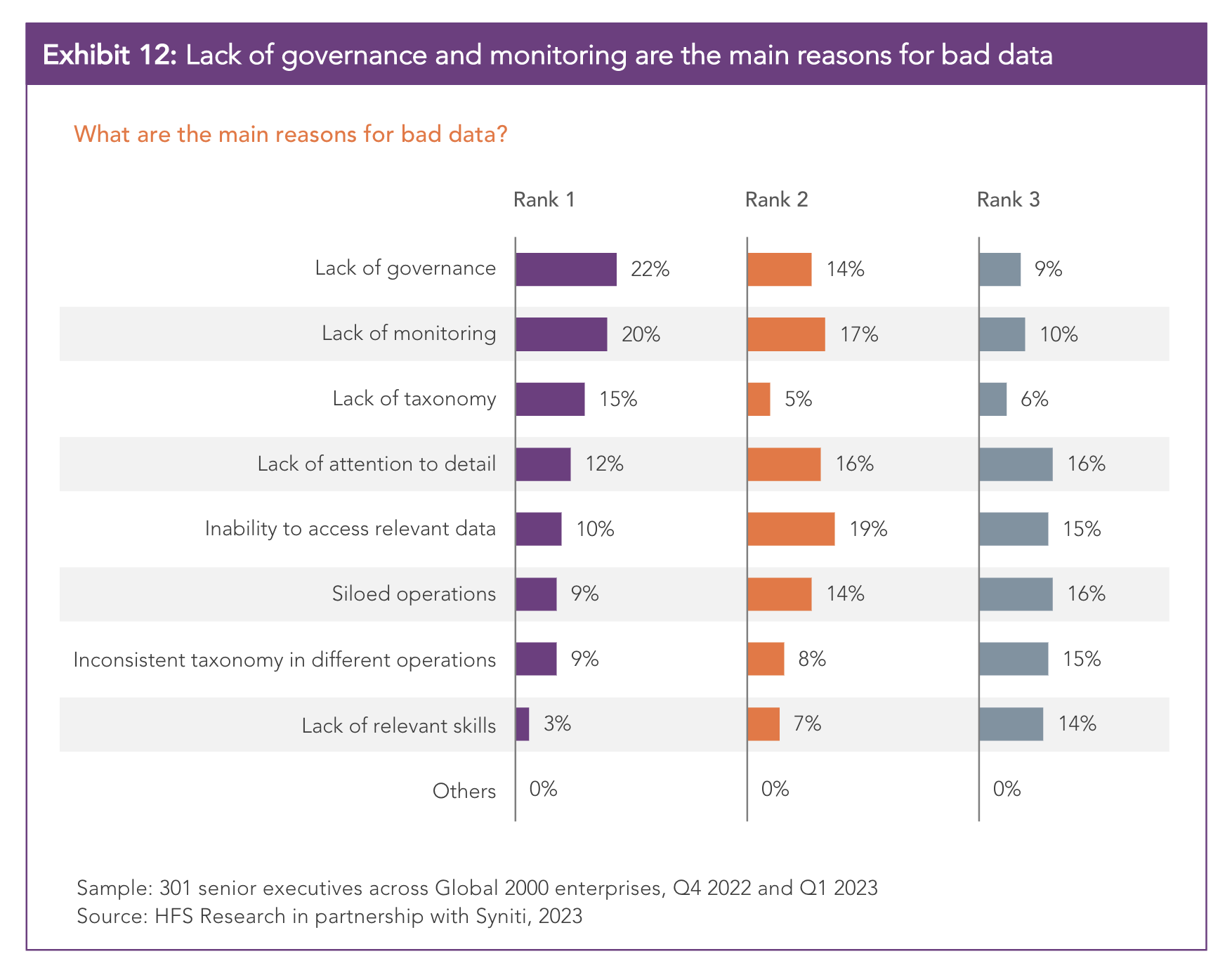Have you ever been at a teambuilding event where you were asked to do a trust fall with your coworkers? Think of your data as a coworker, would you trust it when you fell?
We get it, sometimes having to trust your data can feel like doing a trust fall with your coworkers. Just as you trust your coworkers to catch you when you fall, you trust your data to be accurate and reliable in helping you make critical business decisions. But, while the perception of trust in data is high the value of that trust is not always realized.
Syniti recently partnered with HFS Research to better understand organizations’ progress on their data management journeys. Together, we surveyed 300 senior executives across Global 2000 enterprises and we learned that 80% of respondents say they trust their organization's data, but less than half of those respondents say at least 60% of enterprise data can be operationalized. If just over 60% of enterprise data can be operationalized, this means that less than two-thirds of the data that organizations collect is consumable and usable.
So what gives?
One reason for this discrepancy is that the perception of trust in data is often subjective and influenced by memorable bad incidents. Another reason… there’s a disconnect between the senior executives who set the objectives and the operational realities of data management. This can lead to a focus on change management rather than adding more technology capabilities.
The biggest challenge in capturing value from data is the human-in-the-loop, where organizations rely on their staff to make informed decisions. This inward-looking approach to operations and technology can challenge the ability to capture value from data. On the other hand, when organizations aim to take action and automate insights based on accurate and relevant data, they progress on their data journey.
To measure the impact of data usage, 44% of respondents use data quality or observability solutions, while 19% measure the net promoter score (NPS). Despite this, only half of those interviewed believe that 60% or less of their data is consumable and usable, with 15% believing that less than 30% of their data is consumable. This suggests that the perception of trust in data may be distorted and that the effective management of the data cycle is crucial.

Exhibit 12 of the study (see below!) provides additional insights into the challenges that organizations face in operationalizing their data. The top reasons for bad data were found to be a lack of governance and monitoring, rather than a lack of skills or technology. This suggests that the issues are primarily internally focused and relate to managing data assets effectively. So, like we were saying, trust falls right?

The impact of bad data can be significant, with 33% of respondents estimating that bad data impacts more than 20% of migration efforts. This highlights the importance of identifying and addressing key challenges in data management, such as governance, monitoring, and ensuring that procured technologies are implemented and used effectively.
The importance of data in today's business landscape cannot be overstated. Data is a valuable asset that can be leveraged to improve decision-making, enhance customer experiences, and increase operational efficiency, but as the data landscape continues to grow more complex, many organizations are struggling to operationalize their data effectively.
So there you have it. Trusting your data is like doing a trust fall with your coworkers. While the perception of trust in data is high, the value of that trust is not always realized due to subjective perceptions and a disconnect between senior executives and operational realities. Effective management of the data cycle, including addressing governance, monitoring, and technology implementation challenges, is crucial in realizing the full value of trusting your data.
Ready to learn more about the research? View the full report here.